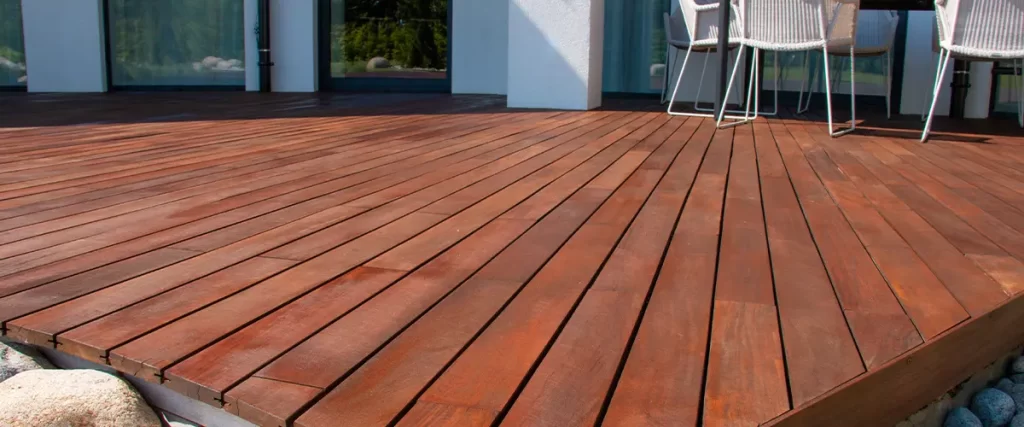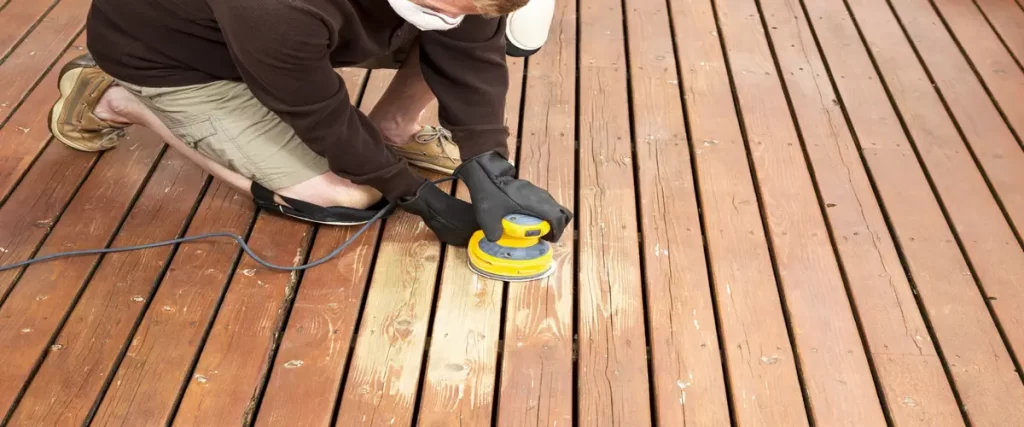If you have a deck, you know how important it is to keep it looking its best. Over time, weather, foot traffic, and general wear can make your deck look dull or even damaged. That’s where sanding comes in—it’s the secret to reviving your deck and making it look brand new. But not just any sander will do. You need the right deck sander to get the job done quickly and effectively.
In this guide, we’ll walk you through the best deck sanders out there, how to choose the right one for your project, and tips for making sanding as easy as possible.

Why Sanding Your Deck Matters
Sanding isn’t just about looks—it’s about protecting your deck too. Here’s why it’s so important:
- Smooth Surface: Sanding removes rough spots, splinters, and uneven areas, making your deck safer to walk on.
- Better Stain or Paint Application: A smooth surface allows stains, paints, and sealants to absorb evenly, giving your deck a polished and professional finish.
- Longer Deck Life: Regular maintenance, including sanding, helps prevent wood damage and extends your deck’s lifespan.
Types of Deck Sanders
Before we dive into the best deck sanders, it’s important to understand the different types. Each type has its pros and cons, depending on your deck’s size, condition, and your experience level.
1. Belt Sanders
Belt sanders are powerful and fast. They use a continuous loop of sandpaper to quickly remove layers of wood, making them ideal for large, flat surfaces.
- Best For: Large decks with lots of flat areas.
- Pros: Fast, efficient, and great for heavy-duty sanding.
- Cons: Can be tricky to handle for beginners and might be too aggressive for softer woods.
2. Orbital Sanders
Orbital sanders are lightweight and easy to control. They use a circular sanding motion, which is less aggressive than belt sanders but still effective.
- Best For: Smaller decks or delicate wood that requires gentle sanding.
- Pros: Easy to use, less likely to damage wood, and great for finishing work.
- Cons: Slower than belt sanders for large areas.
3. Random Orbital Sanders
Random orbital sanders combine the circular motion of an orbital sander with a spinning motion, creating a random pattern. This prevents visible sanding marks and gives a smoother finish.
- Best For: Most decks, especially if you want a professional-grade finish.
- Pros: Versatile, easy to use, and produces excellent results.
- Cons: Slightly more expensive than basic orbital sanders.
4. Drum Sanders
Drum sanders are heavy-duty machines designed for large-scale sanding projects. They’re often used by professionals for extensive refinishing jobs.
- Best For: Very large decks or badly weathered wood.
- Pros: Extremely powerful and fast.
- Cons: Expensive, bulky, and harder to control—best left to experienced users.
5. Detail Sanders
Detail sanders are small, handheld tools designed for precision work. They’re perfect for getting into corners, edges, and tight spaces.
- Best For: Sanding railings, edges, and other tricky spots.
- Pros: Compact, precise, and affordable.
- Cons: Not suitable for large surface areas.
Top Deck Sanders for 2025
Here are some of the best deck sanders available today. These picks are based on performance, ease of use, and customer reviews.
1. Makita 9403 Belt Sander
- Why It’s Great: This powerful belt sander is known for its efficiency and durability. It’s quiet compared to other belt sanders and removes material quickly.
- Ideal For: Large decks with rough surfaces.
- Price Range: $$$
2. DeWalt DCW210B Random Orbital Sander
- Why It’s Great: Lightweight, cordless, and easy to handle, this random orbital sander delivers a smooth finish without the hassle of cords.
- Ideal For: Medium-sized decks and beginners.
- Price Range: $$
3. Bosch ROS20VSC Palm Sander
- Why It’s Great: This compact orbital sander is perfect for precise work and produces minimal dust thanks to its built-in dust collection system.
- Ideal For: Small decks or touch-up jobs.
- Price Range: $
4. Clarke EZ-8 Drum Sander
- Why It’s Great: This professional-grade drum sander is a beast when it comes to tackling large or severely damaged decks.
- Ideal For: Professionals or experienced DIYers handling extensive refinishing jobs.
- Price Range: $$$$
5. Black+Decker Mouse Detail Sander
- Why It’s Great: Small and affordable, this detail sander is perfect for sanding tight spots like corners, railings, and edges.
- Ideal For: Precision work on any deck.
- Price Range: $
How to Choose the Right Deck Sander
Picking the right sander depends on your deck’s condition and your personal needs. Here’s what to consider:
- Deck Size: Larger decks call for powerful tools like belt or drum sanders, while smaller decks can be sanded with orbital sanders.
- Wood Condition: For rough, weathered wood, a belt or drum sander is your best bet. For light sanding or refinishing, an orbital or random orbital sander works well.
- Experience Level: If you’re new to sanding, stick with easy-to-use tools like orbital or random orbital sanders.
- Budget: Sanding tools range from affordable to high-end. Choose one that balances quality and price for your project.
- Dust Collection: Look for models with built-in dust bags or attachments to keep your workspace clean.
Tips for Sanding Your Deck
Sanding doesn’t have to be overwhelming. Follow these tips to get the best results:
- Prep Your Deck: Remove furniture, sweep off debris, and clean the surface before you start sanding.
- Pick the Right Sandpaper: Use coarse-grit sandpaper (like 60-80 grit) for rough surfaces, then switch to finer grits (like 100-120 grit) for a smooth finish.
- Test First: Start in an inconspicuous area to test your sander and technique.
- Go With the Grain: Always sand in the direction of the wood grain to avoid scratches.
- Take Breaks: Sanding can be tiring, especially on large decks. Work in sections and take breaks as needed.
FAQs About Deck Sanders
Q: Can I rent a sander instead of buying one?
A: Yes! Renting is a great option if you only need a sander for one project. Many hardware stores offer rentals for drum sanders, belt sanders, and more.
Q: How often should I sand my deck?
A: It depends on your deck’s condition and usage. For heavily used decks, sanding every 2-3 years helps maintain its appearance and durability.
Q: Do I need to sand my deck before staining?
A: Yes, sanding ensures the stain absorbs evenly and prevents blotchy or uneven finishes.
Q: Can I use a regular sander for my deck?
A: It depends on the sander’s power and design. Look for a tool designed for heavy-duty work to handle the demands of deck sanding.

Find the Best Sander for Your Deck
Sanding your deck is a crucial step in maintaining its beauty and longevity. Whether you choose a belt sander for speed, a random orbital sander for versatility, or a drum sander for professional-grade results, the right tool can make all the difference.
At Werner Decks, we specialize in helping homeowners achieve stunning decks that stand the test of time. Need help sanding or refinishing your deck? Our expert team has the tools, skills, and experience to bring your vision to life.
Contact Werner Decks today at (443) 926-6996 to schedule a consultation and give your deck the care it deserves! Get in touch today, and let’s upgrade your space!
